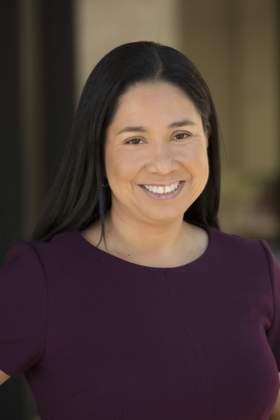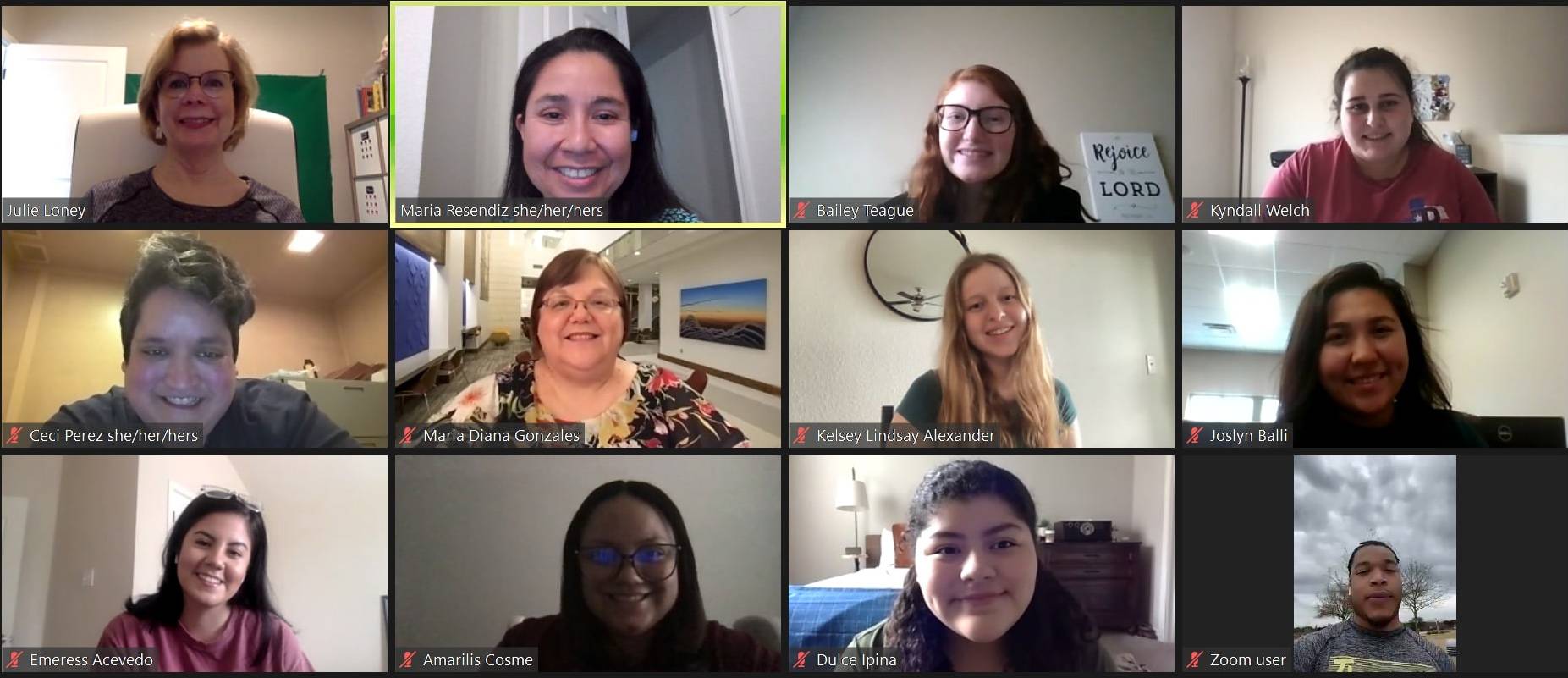Julie Cooper | April 5, 2021

Each year, one in 700 babies will be born with a cleft lip or cleft palate, or both. In the United States, surgery is usually performed in the first 18 months of a child’s life. The infants born in developing countries may wait years for surgery.
Dr. Maria Resendiz, bilingual speech language pathologist (SLP) and associate professor in the Department of Communication Disorders at Texas State University, understands the challenges of cleft palates and speech disorders and the importance of follow-up speech therapy after surgery. In 2019, Resendiz and Austin-based speech language pathologist Julie Loney traveled to El Salvador with Austin Smiles, a nonprofit group of surgeons and health professionals whose mission is to provide sustainable care to children in Central Texas and Latin America.
These days, Resendiz and her Texas State University team of staff, faculty and students are training the trainers – therapists working in El Salvador using telepractice technology. The professor explained El Salvador does not have a university with a speech language program and there are no certified speech language pathologists there.
“We started working directly with the children, but we needed a more sustainable model,” Resendiz said. The Instituto Salvadoreno de Rehabilitacion Integral (ISRI) offers no cost therapy to Salvadorans. At the request of ISRI, a series of trainings conducted by Resendiz and her team was held this spring semester.
These trainings are part of a collaboration for the Bilingual Speech Sound Disorders course, a Service-Learning Excellence class that partners with Austin Smiles. Curt Roberts, chair of Austin Smiles and CEO of Cornerstone Healthcare Group, and Resendiz are members of the advisory board of Service-Learning Excellence.
Resendiz and Dr. Diana Gonzales, professor in the Department of Communication Disorders, were recently awarded two internal grants: Service-Learning Excellence Research Mini Grant and Wilson Latin American Fellowship Grant to continue the Train the Trainers portion of project PLATICAR (Providing Language Articulation Therapy in Countries and Regions). Gonzales and Ceci Perez, clinical lecturer, are also co-investigators and have played key roles in developing and delivering the trainings. In addition, both graduate and undergraduate students – with varying levels of Spanish proficiency – assist in telepractice trainings.

Through Zoom, the first telepractice training was held in January. Resendiz said that therapists from across El Salvador were able to join the training. Two more trainings are scheduled before the semester ends with trainings expected to resume in the fall.
Resendiz said that Austin Smiles, which recently celebrated its 35th birthday, is special because it collaborates with local doctors. “They don’t just do the surgeries and disappear,” she said. The follow-up speech therapy is very important for the children and their families.
Each one-week mission trip to a country can help more than 50 children. The summer 2021 trip to El Salvador was recently rescheduled for February 2022.
In working with Texas State, Austin Smiles is studying the effectiveness of teletherapy services such as WhatsApp, where speech therapy services are unavailable.
“We hope to add a supervision piece to the training. We want to make it a really complete program,” Resendiz said. “When I started this, I was really appreciative of my department chair, Dr. Valarie Fleming, for supporting my ambition to travel and be part of this international collaboration.” Resendiz said.
Share this article
For more information, contact University Communications:Jayme Blaschke, 512-245-2555 Sandy Pantlik, 512-245-2922 |
